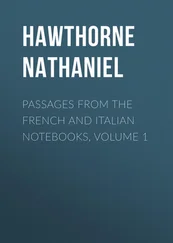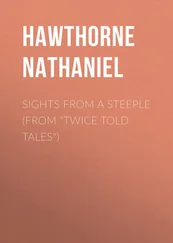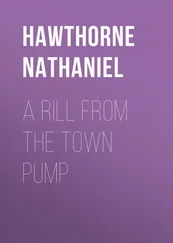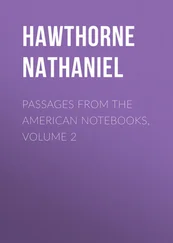Nathaniel Hawthorne - Passages from the English Notebooks, Volume 1
Здесь есть возможность читать онлайн «Nathaniel Hawthorne - Passages from the English Notebooks, Volume 1» — ознакомительный отрывок электронной книги совершенно бесплатно, а после прочтения отрывка купить полную версию. В некоторых случаях можно слушать аудио, скачать через торрент в формате fb2 и присутствует краткое содержание. Жанр: literature_19, foreign_antique, foreign_prose, на английском языке. Описание произведения, (предисловие) а так же отзывы посетителей доступны на портале библиотеки ЛибКат.
- Название:Passages from the English Notebooks, Volume 1
- Автор:
- Жанр:
- Год:неизвестен
- ISBN:нет данных
- Рейтинг книги:4 / 5. Голосов: 1
-
Избранное:Добавить в избранное
- Отзывы:
-
Ваша оценка:
- 80
- 1
- 2
- 3
- 4
- 5
Passages from the English Notebooks, Volume 1: краткое содержание, описание и аннотация
Предлагаем к чтению аннотацию, описание, краткое содержание или предисловие (зависит от того, что написал сам автор книги «Passages from the English Notebooks, Volume 1»). Если вы не нашли необходимую информацию о книге — напишите в комментариях, мы постараемся отыскать её.
Passages from the English Notebooks, Volume 1 — читать онлайн ознакомительный отрывок
Ниже представлен текст книги, разбитый по страницам. Система сохранения места последней прочитанной страницы, позволяет с удобством читать онлайн бесплатно книгу «Passages from the English Notebooks, Volume 1», без необходимости каждый раз заново искать на чём Вы остановились. Поставьте закладку, и сможете в любой момент перейти на страницу, на которой закончили чтение.
Интервал:
Закладка:
Visitors this morning. Mr. Ogden of Chicago, or somewhere in the Western States, who arrived in England a fortnight ago, and who called on me at that time. He has since been in Scotland, and is now going to London and the Continent; secondly, the Captain of the Collins steamer Pacific, which sails to-day; thirdly, an American shipmaster, who complained that he had never, in his heretofore voyages, been able to get sight of the American Consul.
Mr. Pearce's customary matutinal visit was unusually agreeable to-day, inasmuch as he laid on my desk nineteen golden sovereigns and thirteen shillings. It being the day of the steamer's departure, an unusual number of invoice certificates had been required, – my signature to each of which brings me two dollars.
The autograph of a living author has seldom been so much in request at so respectable a price. Colonel Crittenden told me that he had received as much as fifty pounds on a single day. Heaven prosper the trade between America and Liverpool!
August 15th. – Many scenes which I should have liked to record have occurred; but the pressure of business has prevented me from recording them from day to day.
On Thursday I went, on invitation from Mr. B., to the prodigious steamer Great Britain, down the harbor, and some miles into the sea, to escort her off a little way on her voyage to Australia. There is an immense enthusiasm among the English people about this ship, on account of its being the largest in the world. The shores were lined with people to see her sail, and there were innumerable small steamers, crowded with men, all the way out into the ocean. Nothing seems to touch the English nearer than this question of nautical superiority; and if we wish to hit them to the quick, we must hit them there.
On Friday, at 7 P.M., I went to dine with the Mayor. It was a dinner given to the Judges and the Grand Jury. The Judges of England, during the time of holding an Assize, are the persons first in rank in the kingdom. They take precedence of everybody else, – of the highest military officers, of the Lord Lieutenants, of the Archbishops, – of the Prince of Wales, – of all except the Sovereign, whose authority and dignity they represent. In case of a royal dinner, the Judge would lead the Queen to the table.
The dinner was at the Town Hall, and the rooms and the whole affair were all in the most splendid style. Nothing struck me more than the footmen in the city livery. They really looked more magnificent in their gold-lace and breeches and white silk stockings than any officers of state. The rooms were beautiful; gorgeously painted and gilded, gorgeously lighted, gorgeously hung with paintings, – the plate was gorgeous, and the dinner gorgeous in the English fashion.
After the removal of the cloth the Mayor gave various toasts, prefacing each with some remarks, – the first, of course, the Sovereign, after which "God save the Queen" was sung, the company standing up and joining in the chorus, their ample faces glowing with wine, enthusiasm, and loyalty. Afterwards the Bar, and various other dignities and institutions were toasted; and by and by came the toast to the United States, and to me, as their Representative. Hereupon either "Hail Columbia," or "Yankee Doodle," or some other of our national tunes (but Heaven knows which), was played; and at the conclusion, being at bay, and with no alternative, I got upon my legs, and made a response. They received me and listened to my nonsense with a good deal of rapping, and my speech seemed to give great satisfaction; my chief difficulty being in not knowing how to pitch my voice to the size of the room. As for the matter, it is not of the slightest consequence. Anybody may make an after-dinner speech who will be content to talk onward without saying anything. My speech was not more than two or three inches long; and, considering that I did not know a soul there, except the Mayor himself, and that I am wholly unpractised in all sorts of oratory, and that I had nothing to say, it was quite successful. I hardly thought it was in me, but, being once started, I felt no embarrassment, and went through it as coolly as if I were going to be hanged.
Yesterday, after dinner, I took a walk with my family. We went through by-ways and private roads, and saw more of rural England, with its hedge-rows, its grassy fields, and its whitewashed old stone cottages, than we have before seen since our arrival.
August 20th. – This being Saturday, there early commenced a throng of visitants to Rock Ferry. The boat in which I came over brought from the city a multitude of factory-people. They had bands of music, and banners inscribed with the names of the mills they belong to, and other devices: pale-looking people, but not looking exactly as if they were underfed. They are brought on reduced terms by the railways and steamers, and come from great distances in the interior. These, I believe, were from Preston. I have not yet had an opportunity of observing how they amuse themselves during these excursions.
At the dock, the other day, the steamer arrived from Rock Ferry with a countless multitude of little girls, in coarse blue gowns, who, as they landed, formed in procession, and walked up the dock. These girls had been taken from the workhouses and educated at a charity-school, and would by and by be apprenticed as servants. I should not have conceived it possible that so many children could have been collected together, without a single trace of beauty or scarcely of intelligence in so much as one individual; such mean, coarse, vulgar features and figures betraying unmistakably a low origin, and ignorant and brutal parents. They did not appear wicked, but only stupid, animal, and soulless. It must require many generations of better life to wake the soul in them. All America could not show the like.
August 22d. – A Captain Auld, an American, having died here yesterday, I went with my clerk and an American shipmaster to take the inventory of his effects. His boarding-house was in a mean street, an old dingy house, with narrow entrance, – the class of boarding-house frequented by mates of vessels, and inferior to those generally patronized by masters. A fat elderly landlady, of respectable and honest aspect, and her daughter, a pleasing young woman enough, received us, and ushered us into the deceased's bedchamber. It was a dusky back room, plastered and painted yellow; its one window looking into the very narrowest of back-yards or courts, and out on a confused multitude of back buildings, appertaining to other houses, most of them old, with rude chimneys of wash-rooms and kitchens, the bricks of which seemed half loose.
The chattels of the dead man were contained in two trunks, a chest, a sail-cloth bag, and a barrel, and consisted of clothing, suggesting a thickset, middle-sized man; papers relative to ships and business, a spyglass, a loaded iron pistol, some books of navigation, some charts, several great pieces of tobacco, and a few cigars; some little plaster images, that he had probably bought for his children, a cotton umbrella, and other trumpery of no great value. In one of the trunks we found about twenty pounds' worth of English and American gold and silver, and some notes of hand, due in America. Of all these things the clerk made an inventory; after which we took possession of the money and affixed the consular seal to the trunks, bag, and chest.
While this was going on, we heard a great noise of men quarrelling in an adjoining court; and, altogether, it seemed a squalid and ugly place to live in, and a most undesirable one to die in. At the conclusion of our labors, the young woman asked us if we would not go into another chamber, and look at the corpse, and appeared to think that we should be rather glad than otherwise of the privilege. But, never having seen the man during his lifetime, I declined to commence his acquaintance now.
Читать дальшеИнтервал:
Закладка:
Похожие книги на «Passages from the English Notebooks, Volume 1»
Представляем Вашему вниманию похожие книги на «Passages from the English Notebooks, Volume 1» списком для выбора. Мы отобрали схожую по названию и смыслу литературу в надежде предоставить читателям больше вариантов отыскать новые, интересные, ещё непрочитанные произведения.
Обсуждение, отзывы о книге «Passages from the English Notebooks, Volume 1» и просто собственные мнения читателей. Оставьте ваши комментарии, напишите, что Вы думаете о произведении, его смысле или главных героях. Укажите что конкретно понравилось, а что нет, и почему Вы так считаете.












